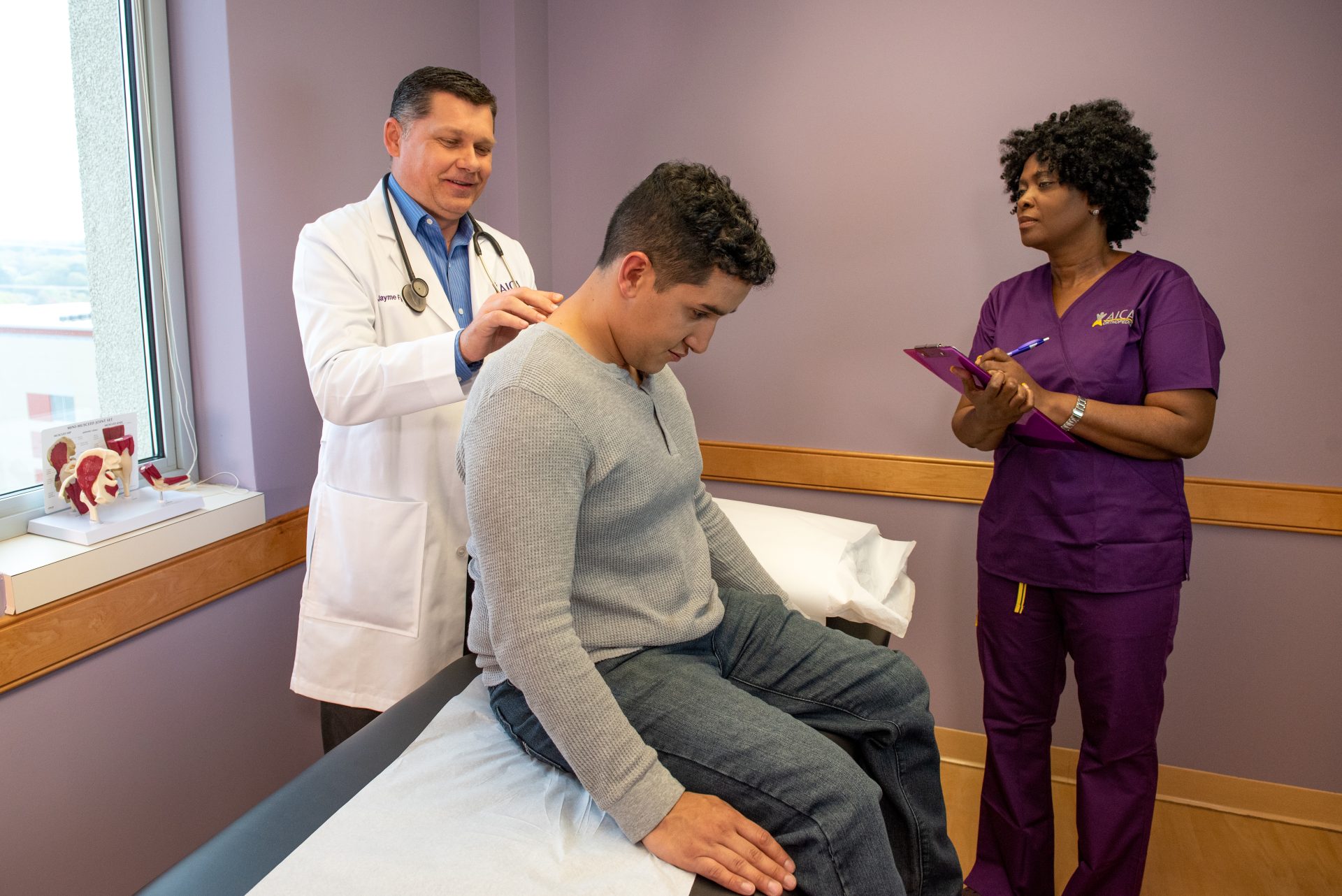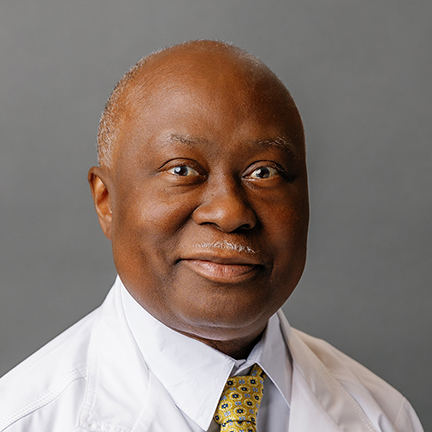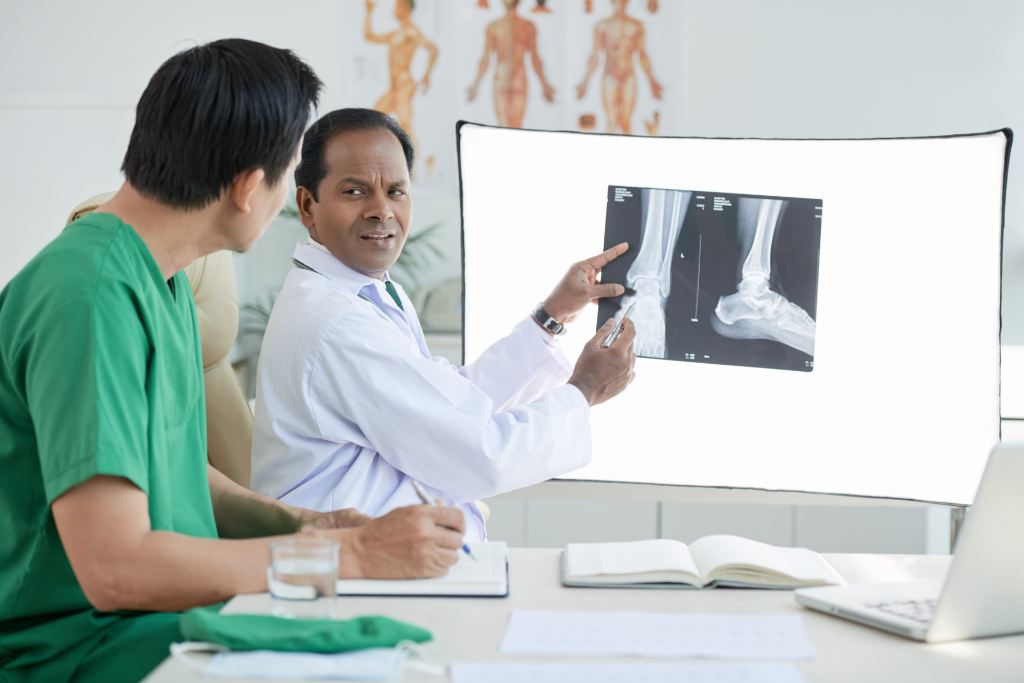
Ortopedia Espinal y Articular
Encuentra la mejor cirugía ortopédica cerca de ti
Centro de cirugía ortopédica de confianza
En Ortopedia AICA, proporcionamos atención experta para una amplia gama de afecciones de la columna vertebral y las articulaciones, desde artrosis y escoliosis hasta dolor articular general. Nuestro equipo de especialistas ortopédicos adopta un enfoque personalizado para identificar la causa raíz de tus molestias mediante pruebas diagnósticas avanzadas, garantizando un tratamiento preciso y eficaz. Con nuestra experiencia especializada en la salud de la columna vertebral y las articulaciones, nos comprometemos a ayudarte a encontrar alivio y recuperar la movilidad.
La medicina ortopédica evoluciona continuamente, ofreciendo soluciones innovadoras para tratar todo el cuerpo. Nuestro equipo adopta este enfoque holístico, adaptando los planes de tratamiento a cada paciente en lugar de ofrecer soluciones únicas para todos. Tanto si buscas una “cirugía ortopédica cerca de mí” como si necesitas atención especializada, Ortopedia AICA está aquí para guiarte hacia un bienestar duradero.
Conoce al Mejor Equipo de Cirugía Ortopédica de AICA
¿Qué es la cirugía ortopédica?
La cirugía ortopédica se centra en el tratamiento de lesiones y trastornos del sistema musculoesquelético, que incluye huesos, articulaciones, ligamentos, tendones y músculos. Este campo especializado trata afecciones derivadas de lesiones, enfermedades degenerativas y trastornos congénitos. El objetivo de la cirugía ortopédica es restaurar la función, aliviar el dolor y mejorar la calidad de vida. En Ortopedia AICA, nuestros experimentados cirujanos ortopédicos, neurólogos y especialistas trabajan juntos para diagnosticar y tratar las afecciones que afectan a tu movilidad y bienestar general.
Señales de que puedes necesitar cirugía ortopédica
Si experimentas alguno de los síntomas siguientes, puede que haya llegado el momento de plantearse la cirugía ortopédica:
- Dolor crónico que no mejora con tratamientos conservadores
- Rango de movimiento limitado o rigidez articular
- Hinchazón o inflamación persistente
- Dificultad para realizar las actividades cotidianas
- Inestabilidad o debilidad articular
- Dolor intenso tras una lesión
Problemas comunes de columna y articulaciones tratados por nuestro equipo de cirugía ortopédica
El dolor articular y de columna es uno de los motivos más frecuentes por los que los pacientes acuden a Ortopedia AICA. Ya sea causado por una lesión, una enfermedad degenerativa o una afección inflamatoria, el dolor persistente puede afectar significativamente a la vida diaria. Nuestros especialistas proporcionan opciones de tratamiento eficaces adaptadas a las necesidades únicas de cada paciente. El dolor articular puede afectar a varias zonas del cuerpo, como la rodillas, hombros, caderas, tobillosy manosque van desde una molestia leve a un dolor debilitante. Afortunadamente, los avances en medicina ortopédica ofrecen ahora procedimientos mínimamente invasivos, como la artroscopia, que permiten un diagnóstico y un tratamiento precisos con un tiempo de recuperación mínimo.
Las afecciones relacionadas con la columna vertebral también traen a muchos pacientes a nuestra clínica, a menudo tras accidentes de tráfico o lesiones que provocan dolor de espalda crónico y movilidad reducida. Dado que la columna vertebral desempeña un papel fundamental en la salud y el movimiento en general, abordar los problemas de columna con prontitud y atención experta es esencial para evitar complicaciones posteriores.
Entre las afecciones articulares y de la columna vertebral más frecuentes que tratamos se incluyen:
- Artrosis: Enfermedad degenerativa de las articulaciones que provoca la rotura del cartílago, con el consiguiente dolor y rigidez.
- Artritis reumatoide: Trastorno autoinmune que afecta a las articulaciones, causando inflamación y molestias.
- Bursitis: Inflamación de los sacos llenos de líquido que amortiguan las articulaciones, que suele provocar dolor e hinchazón.
- Escoliosis: Enfermedad caracterizada por una curvatura anormal de la columna vertebral, que puede afectar a la postura y el movimiento.
- Enfermedad degenerativa discal: Descomposición gradual de los discos vertebrales que puede provocar dolor crónico y problemas de movilidad.
- Hernias discales: Se produce cuando el centro blando de un disco intervertebral empuja a través de una grieta en el exterior más duro, provocando dolor y compresión nerviosa.
- Ciática: Afección causada por la compresión del nervio ciático, que provoca un dolor que se irradia a la pierna.
- Estenosis espinal: Estrechamiento del canal espinal que ejerce presión sobre los nervios, provocando dolor y problemas de movilidad.
Tipos de cirugías ortopédicas que ofrecemos
Nuestra amplia gama de procedimientos ortopédicos incluye:
- Cirugía de sustitución articular – Sustitución de articulaciones dañadas para restablecer la función y reducir el dolor.
- Artroscopia – Cirugía mínimamente invasiva que utiliza una pequeña cámara para diagnosticar y tratar afecciones articulares.
- Cirugía de la columna vertebral – Procedimientos para tratar hernias discales, estenosis espinal y otros trastornos de la columna vertebral.
- Cirugía mínimamente invasiva – Técnicas que requieren incisiones más pequeñas para una recuperación más rápida y menos dolorosa.
Qué esperar durante la cirugía ortopédica en AICA
Tu camino hacia la recuperación comienza con una consulta inicial, en la que nuestros especialistas ortopédicos evaluarán tu estado y discutirán las opciones de tratamiento. Una vez programada la intervención quirúrgica, nuestro equipo te guiará a través de los preparativos preoperatorios, el procedimiento quirúrgico y los cuidados postoperatorios para garantizar una recuperación sin complicaciones. Nuestro compasivo personal te apoyará en todo momento.
Cómo prepararse para una operación ortopédica
Una preparación adecuada es clave para un resultado satisfactorio. Antes de la intervención:
- Sométete a las evaluaciones médicas y pruebas de laboratorio necesarias.
- Sigue las pautas dietéticas y de medicación previas a la cirugía.
- Organiza el transporte y la asistencia postoperatoria.
- Empaca lo esencial para tu estancia en el hospital, incluyendo ropa cómoda y objetos personales.









